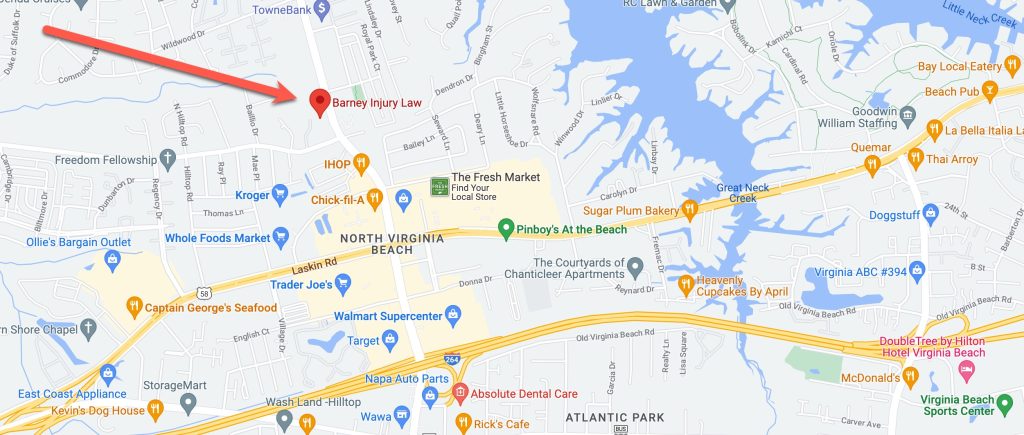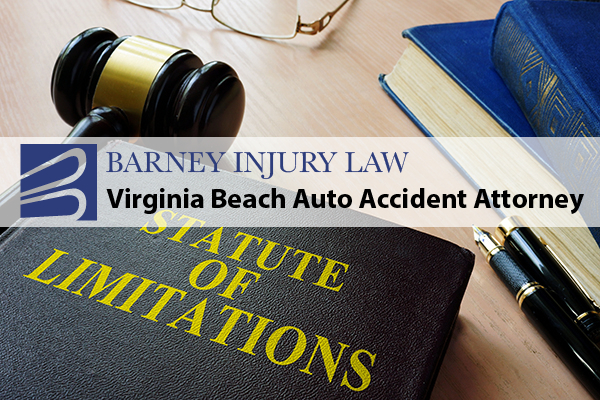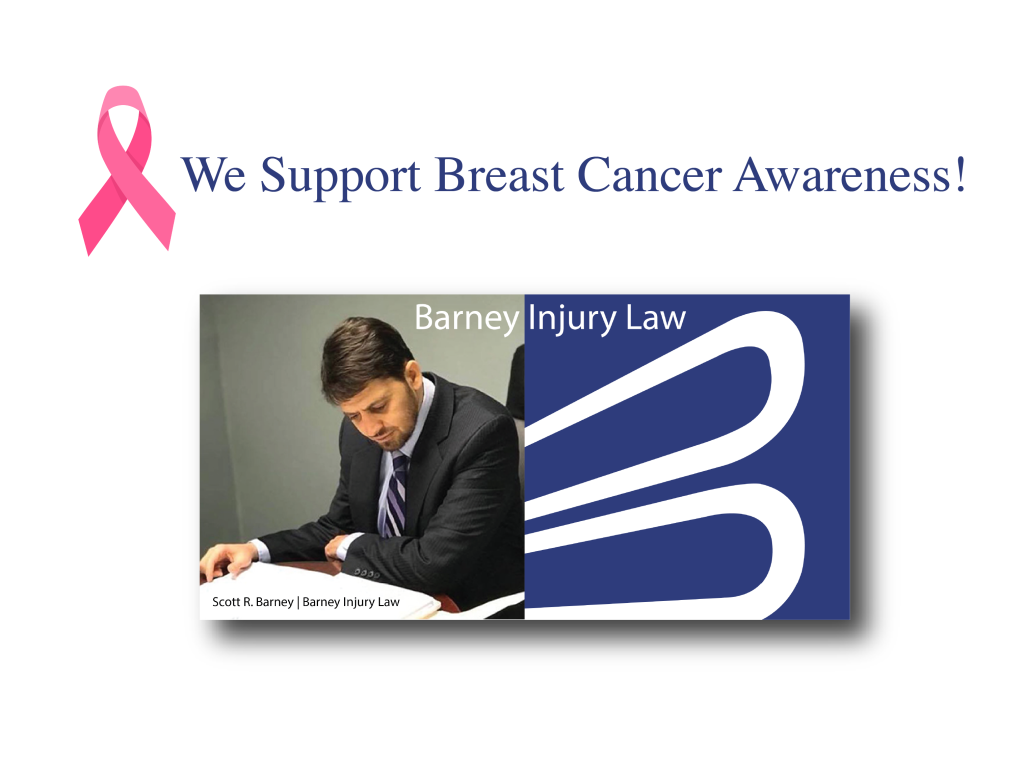It’s essential to be aware of the statute of limitations when mulling over filing a claim against an insurer after being hurt in an accident. In Virginia, this law dictates how long after your injury or incident you have to file suit against another party for damages. Knowing these time limits can be critical when deciding whether or not to pursue legal action as failure to do so within the allotted timeframe may mean forfeiting your right to seek compensation altogether. This blog post will provide an overview of Virginia laws on statute of limitations, help you better understand your rights as an injured party, and offer advice from experienced attorneys like Car Accident Attorney Scott Barney who specialize in car accident cases throughout the Virginia Beach area and beyond.
Table of Contents:
- What is the Statute of Limitations?
- Virginia Laws on Statute of Limitations
- Understanding Your Rights as an Injured Party
- Seeking Legal Advice from an Experienced Attorney
- FAQs in Relation to Statute of Limitations
- Conclusion
What is the Statute of Limitations?
The Statute of Limitations is a legal concept that sets limits on the amount of time an individual has to file a claim or lawsuit. This rule applies to all civil claims, including those related to personal injury and insurance disputes. Knowing the statute of limitations in their state is essential for those who have been injured so that they can preserve their legal rights and secure justice.
Definition of Statute of Limitations
A statute of limitations sets a time limit for an individual to initiate legal action or file a claim against another party, usually ranging from one to six years. Most jurisdictions have set timeframes, typically ranging from one to six years following the incident, for bringing forth a legal action or insurance claim. If someone fails to file within this timeframe, then their case may be dismissed by the court system without any consideration given for its merits.
How Does it Apply To Insurance Claims?
When dealing with insurance companies, many states require that claimants submit proof-of-loss forms within a certain number of days following an incident (typically 30 days). These documents provide evidence that you were injured due to someone else’s negligence and should include detailed information about what happened leading up to your injury along with medical records outlining your treatment plan and recovery progress. After submitting these forms, you typically have two years from the date you suffered your injuries before having to file suit against the insurer if necessary.
What Are The Time Limits For Filing A Claim?
Realizing the Statute of Limitations is critical when filing insurance claims, as it establishes a time boundary for making your claim. Let’s delve deeper into the Statute of Limitations regulations in Virginia pertaining to various injury cases. If you have detailed questions about your potential Car Accident Legal case contact Barney Injury Law.
Key Takeaway: A hard cutoff is established by the Statute of Limitations for persons to bring forth their claims in an effort to attain justice. For insurance disputes, claimants must submit proof-of-loss forms within 30 days following an incident and have two years from the date they suffered injuries before filing suit against the insurer if necessary. Failure to do so may result in dismissal without consideration of its merits by the court system.
Virginia Laws on Statute of Limitations
In Virginia Beach, VA, statutes of limitation are established for filing legal actions related to car accidents and other types of injury claims.
In Virginia Beach, VA, claimants have a two-year time period to make their car accident claim from the date of the crash. This includes any type of personal injury case stemming from an automobile collision such as wrongful death or property damage. Failing to file within the two-year window may render any claims for damages inadmissible due to the expiration of the statute of limitations.
Other Types of Injury Claims in Virginia Beach, VA: The statute of limitations for other types of injuries can vary depending on what kind and where it happened. Generally speaking though, most personal injury cases must be filed within two years with some exceptions such as medical malpractice which has a one-year limit for filing claims in many states including Virginia Beach, VA. Additionally if you are injured by a government employee then you only have six months from when the incident occurred before filing suit against them becomes impossible due to the statute expiring.
In Virginia Beach, VA, the Statute of Limitations is a complex legal concept that must be fully grasped to guarantee one’s rights are safeguarded. It’s important for injured parties to understand their rights and how to calculate the value of their claim when filing an injury lawsuit in Virginia Beach, VA.
Key Takeaway: In Virginia Beach, VA car accident claims and other types of injury claims must be filed within two years; otherwise they are time-barred due to the statute of limitations. Exceptions include medical malpractice which has a one-year limit for filing claims in many states including Virginia Beach, VA and cases involving government employees where claimants have only six months from when the incident occurred before filing suit becomes impossible.
Understanding Your Rights as an Injured Party
Injured persons must know their legal entitlements and the pertinent regulations concerning personal injury cases. This section will explain who can file a claim, what damages can be recovered, and how to calculate the value of your claim.
Injured persons who may have experienced harm due to another’s carelessness or recklessness could be able to obtain compensation through a civil suit. If you delay filing a lawsuit, the statute of limitations may prevent any legal action from being taken. It is critical to reaching out to a knowledgeable lawyer right away after being hurt in order for them to assess your case and provide counsel on whether or not you have sufficient justification for legal action.
Depending on the case, a successful court ruling may result in compensatory (economic) damages such as medical bills or lost wages; non-economic (general) damages like pain and suffering; punitive damages to punish wrongdoers rather than compensate victims; and sometimes even attorneys’ fees if awarded by the court. Calculating these amounts requires careful consideration from both parties involved in order for them to come up with a fair settlement amount based on the evidence presented during trial proceedings.
It is critical that those seeking compensation for injuries resulting from another’s negligence seek out experienced legal representation right away in order to ensure their rights are protected throughout every step of this process. A knowledgeable lawyer familiar with Virginia Beach laws can help guide clients through this complex process while ensuring they receive full compensation for their losses due to another’s actions.
Realizing the importance of your entitlements as a wounded individual is essential in order to take the most beneficial decisions for you and your family. Seeking counsel from a competent lawyer can help guarantee that your rights are safeguarded.
Key Takeaway: Injured parties must act quickly to seek legal recourse for personal injury cases, as the statute of limitations applies. Experienced attorneys can help ensure that those seeking damages are fairly compensated and have their rights protected in accordance with Virginia Beach laws. Hasten to take legal action promptly, as delays can jeopardize your chance for compensation.
Seeking Legal Advice from an Experienced Auto Accident Attorney
Getting counsel from a seasoned legal practitioner for any personal injury claim is essential. Working with a lawyer in Virginia Beach, VA who has extensive knowledge of the laws and statutes surrounding your case can be invaluable. Here are some benefits to consider when hiring a car accident attorney:
An experienced lawyer will be familiar with the legal time limits applicable to your claim, as well as any potential exceptions. This means they’ll know exactly how long you have to file suit against the responsible party and their insurance company before you lose your right to seek compensation. They’ll also understand any exceptions that may apply in your particular situation so that you don’t miss out on potential damages due to time constraints.
An experienced attorney can provide access to invaluable resources, such as expert witnesses and medical specialists, which may be necessary for bolstering your claim. Your lawyer will be able to assist you in navigating the process while making sure all documentation is completed correctly and deadlines are adhered to as mandated by state regulations.
A qualified personal injury lawyer can provide assurance, being devoted to advocating for your welfare throughout the process. From gathering evidence and negotiating settlements with insurance companies to preparing for trial if litigation becomes necessary, having a knowledgeable attorney by your side ensures that all paperwork is filed correctly and deadlines are met according to state law. Keywords: Qualified Personal Injury Lawyer, Best Interests, Gathering Evidence, Negotiating Settlements, Insurance Companies, Trial Preparation
Before hiring a car accident attorney, there are several questions worth asking including: How much experience do they have handling similar cases? What kind of results have they achieved? Are there any charges or expenses I should know about? Do they offer free consultations? Answering these questions ahead of time will give you greater insight into what type of representation would best serve both your needs and those affected by this unfortunate event.
It is important to not only find an attorney who specializes in personal injury law but one who has successfully handled cases like yours specifically; whether it be auto accidents or slip and fall incidents involving premises liability issues. Expertise matters when it comes time for negotiations or even taking things before the court if need be. The more experienced counsels know how hardball tactics work within certain jurisdictions which could mean significantly higher settlement amounts than inexperienced lawyers could achieve on their own behalf.
Key Takeaway: Engaging an experienced legal professional is key when dealing with personal injury cases, as they can provide insight on the applicable statutes of limitation and access to resources such as specialist witnesses. An experienced lawyer can guarantee that all legal formalities are complied with and deadlines observed, thus safeguarding your interests.
FAQs in Relation to Statute of Limitations
What is the reasoning behind the statute of limitations?
It protects defendants from having to defend against stale claims and allows plaintiffs to pursue their rights while evidence is still available. The time frame for filing a claim is determined by the jurisdiction and type of case. This helps ensure justice is served promptly and fairly for all parties involved.
What crimes have no statute of limitations in the US?
No time limit for prosecution exists on certain criminal acts, such as homicide, abduction, treason, espionage, and human rights violations. In some instances, particular sexual transgressions may not be limited by a statute of limitations contingent upon the relevant state or federal laws. Generally speaking, these types of cases are serious felonies that require an experienced attorney for proper legal representation.
Do all crimes in the US have a statute of limitations?
No, not all offenses in the US are subject to a statute of limitations. Statutes of limitation are legal time limits that determine how long after an incident or crime has occurred before it can no longer be prosecuted by law. The length and occurrence of statutes of limitations can differ depending on the nature and gravity of the crime committed, as well as state regulations. For example, some states may impose no statute for murder while others may limit prosecution to five years from when the crime was committed. Additionally, certain federal offenses may not have any set time limit for prosecution.
What crime has the shortest statute of limitations?
The crime with the shortest statute of limitations is typically a misdemeanor, which generally has a two-year limit. In some areas, misdemeanor offenses may be subject to a one-year statute of limitations, whereas felonies often have longer limitation periods that can reach up to twenty years. In comparison, felony crimes usually carry longer statutes of limitations ranging from three years to as many as twenty years in certain cases. It is noteworthy that certain offenses, e.g., homicide and treason, may not be subject to any limitation period.
Conclusion
Considering the time frame in which a claim for damages due to an automobile collision can be filed is essential. Understanding the laws in Virginia and your rights as an injured party are key steps toward seeking legal advice from experienced attorneys like Mr. Scott Barney who can help you determine if suing for damages is right for you. Don’t wait too long, contact him today.
Barney Injury Law
923 First Colonial Rd #1823
Virginia Beach, VA 23454
Read our Car and Auto Accident Reviews on Google
(757) 500-5706
HOME



